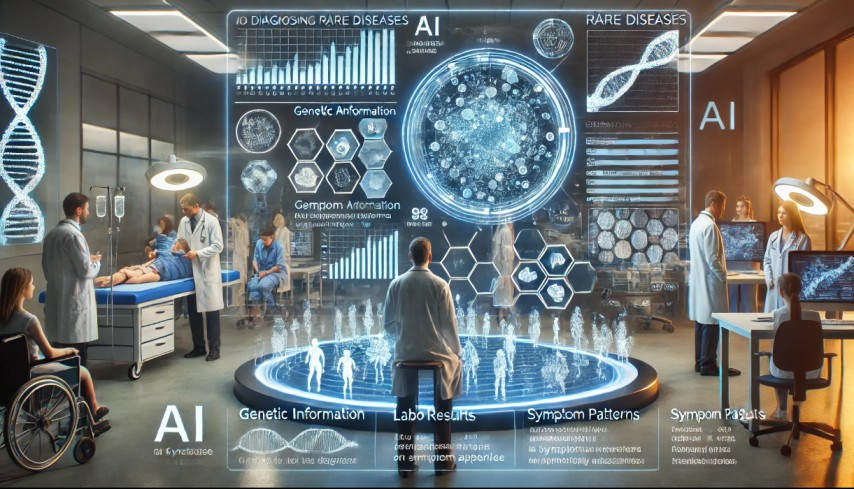
How Nexarm is Revolutionizing Diagnosis in Rare Diseases
Diagnosing rare diseases is one of the most challenging tasks in healthcare. These conditions often go undetected or misdiagnosed for years, leaving patients to suffer without proper treatment. Many rare diseases present with symptoms that mimic more common conditions, which can lead to long diagnostic odysseys as patients undergo numerous tests, specialist visits, and trial-and-error treatments. However, artificial intelligence (AI) is changing this landscape, and Nexarm is at the forefront of this revolution. Through advanced machine learning models and data analysis, Nexarm is improving the speed and accuracy of rare disease diagnosis, helping to close the gap for patients who need answers the most.
The Rare Disease Challenge
Rare diseases, by definition, affect a small percentage of the population—typically fewer than 1 in 2,000 people. Because they are so uncommon, doctors often don’t have the experience or data needed to recognize these conditions early on. In fact, the average time to diagnose a rare disease can be as long as five to seven years. During this time, patients may suffer from worsening symptoms and ineffective treatments. Part of the challenge lies in the sheer complexity of rare diseases, many of which involve genetic factors that aren’t immediately obvious through standard diagnostic tests.
How AI Helps with Rare Disease Diagnosis
Nexarm leverages AI to solve these problems by quickly analyzing vast amounts of patient data, including genetic information, lab results, and medical imaging. Through pattern recognition, Nexarm’s AI is able to identify correlations that may be missed by human practitioners, offering clues that lead to earlier and more accurate diagnoses. AI doesn’t rely solely on human experience; it can access and process thousands of similar cases in seconds, cross-referencing symptoms and genetic markers to highlight potential rare diseases that could otherwise go undetected.
For example, if a patient presents with a collection of unusual symptoms that don’t fit any common diagnosis, Nexarm can analyze their data against a global database of rare disease cases. It might flag specific genetic variants, lab abnormalities, or symptom clusters that suggest a rare condition, providing a list of possible diagnoses for the doctor to consider. This significantly reduces the time to diagnosis, allowing patients to receive the right treatment sooner.
The Impact on Patient Lives
Early and accurate diagnosis is crucial for patients with rare diseases. Without it, they often face years of ineffective treatments and progressively worsening conditions. Nexarm’s AI-driven diagnostics help doctors cut through the complexity, offering clearer paths to treatment. For instance, patients with genetic conditions like Gaucher disease or Fabry disease—disorders that affect metabolism—can benefit from early diagnosis, allowing them to begin enzyme replacement therapies that significantly improve quality of life. Similarly, Nexarm can help doctors detect rare cancers in their earliest stages when they are most treatable.
A Collaborative Approach
Diagnosing rare diseases often requires input from various specialists, including geneticists, neurologists, and immunologists. Nexarm’s AI platform facilitates this collaboration by providing a centralized system for analyzing and sharing patient data. This ensures that all members of the care team have access to the same information and insights, making it easier to reach a consensus on diagnosis and treatment. Additionally, Nexarm’s machine learning models are constantly improving, refining their algorithms based on new data to enhance diagnostic accuracy over time.
Nexarm’s Vision for Rare Disease Diagnosis
Nexarm envisions a future where no patient has to endure a prolonged diagnostic journey. By integrating AI into the diagnostic process, we aim to empower doctors with the tools they need to detect rare diseases early, reduce diagnostic delays, and improve patient outcomes. As we continue to refine our AI models and expand our global database of rare disease cases, we are confident that Nexarm will play a key role in the future of precision medicine. Rare disease patients deserve answers, and we are committed to providing them.
